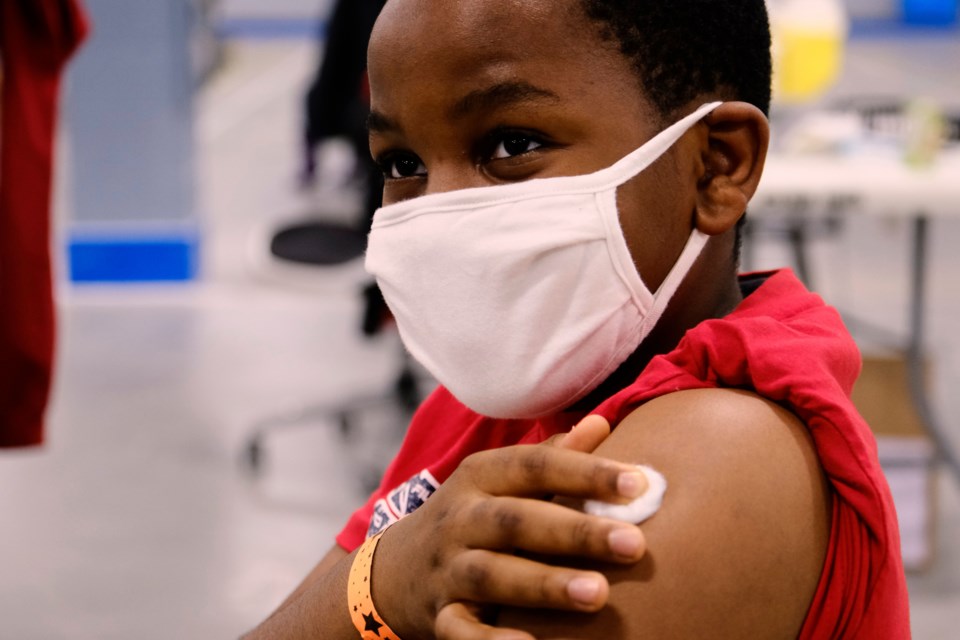THUNDER BAY – Thunder Bay’s medical officer of health expects children under five could have access to COVID-19 vaccines as soon as late August.
Dr. Janet DeMille called expanding vaccine access to the youngest group an important step, but acknowledged many parents may greet the news with uncertainty.
If the vaccines are approved by Health Canada in the coming weeks, as expected, the health unit will work to give parents a clear picture of the benefits and possible side effects, she said.
“We do know with the younger age group, there is sometimes a little more hesitancy, people potentially questioning how beneficial is it? Is my child that much at risk of COVID? And also understanding what the risks might be. It’s important we provide the facts to parents so they can make that decision.”
Children between six months and five years old are already eligible for vaccines in the United States, with the Centers for Disease Control and Prevention recommending Moderna and Pfizer products for use in June.
The approval south of the border is one factor that gives DeMille confidence, though she said local health authorities will closely review data from Health Canada and recommendations from the National Advisory Committee on Immunizations (NACI).
“It’s always important to look at the data, look at the benefits, look at any side effect profile,” she said. “I don’t anticipate any issues – it will be in many ways similar to many other vaccines.”
U.S. data showed the Moderna vaccine produces a strong immune response in young children. It also showed the vaccine produced more significant side effects than others, with one in five children running a fever after receiving it.
The Pfizer vaccine produced a strong immune response with fewer side effects, though it requires three doses.
Public opinion polls in the U.S. have indicated as few as one fifth of parents intend to have their children under five immunized.
While uptake may be higher in Canada, local data indicates parents here are hesitant, too. Only 59.4 per cent of children aged 5 to 11 have so far received a first dose of the vaccine, while 41.6 per cent have a second dose.
DeMille pointed out children under five are more vulnerable to COVID-19 than those older children.
According to Public Health Ontario data, 25 children under five have been hospitalized with COVID-19 in the Thunder Bay District.
That’s a hospitalization rate of 324 per 100,000 people in that age group – far below the rate for the most vulnerable aged 80-plus in the district (1,560 per 100,000), but well above the rate for children five to 11 (61.5 per 100,000), and those 12 to 19 (90 per 100,000).
Eying further waves of COVID-19, DeMille said the vaccine will likely be a useful tool in preventing severe outcomes for younger children.
“The pandemic is not over – even after we get through the B.A.5 wave and get into the fall and the winter, we can expect more waves,” she said. “So it’s really nice that there will be an option available for the youngest group.”
Moderna submitted its application for approval of the younger children’s dose to Health Canada in April. Pfizer submitted its application in June.
Public health authorities have said they expect authorization within weeks, and DeMille expects supply could arrive in the area as soon as late August.
